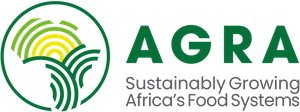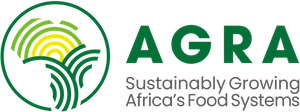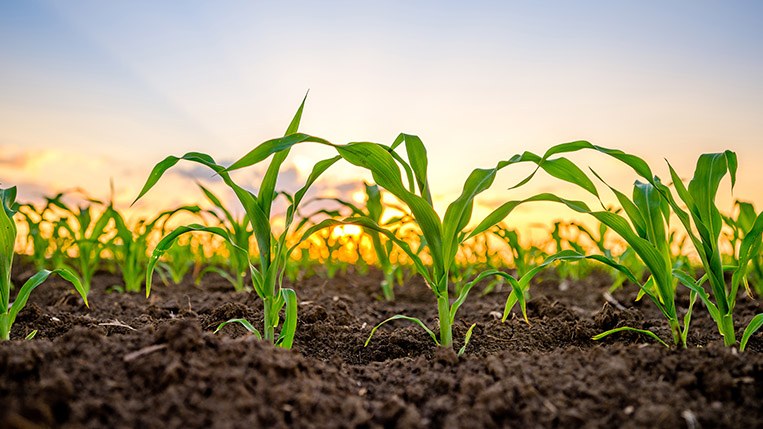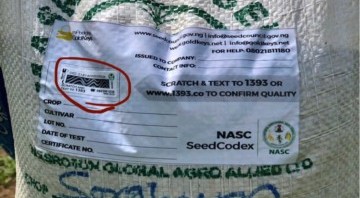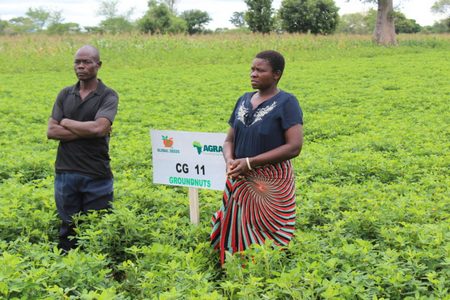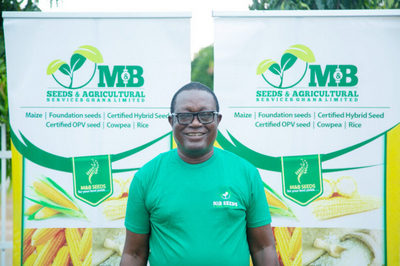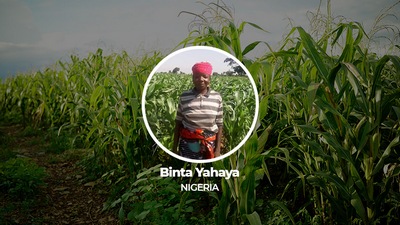AGRA moves to accelerate uptake of improved seeds in Africa
Seed has been recognized as the foundation of life, and according to one AGRA scientist, it is the central factor in farmers’ lives. For farmers to achieve adequate returns on investment and sustain agricultural intensification, they must adopt seed with improved genetics, coupled with fertilizer and good crop management practices.
In the past decade, AGRA focused on improving Africa seed systems by supporting training of a new generation of African crop breeders in different national research systems, who in turn have been able to breed and officially release new improved resilient crop varieties in different countries.
With the new varieties in the market, AGRA went ahead to support local seed entrepreneurs especially for seed multiplication and distribution. And for the last mile, AGRA has been building agro-dealer networks, who sell improved seed and other inputs to local smallholder farmers.
Nevertheless, the volume of seed being supplied remains far short of the requirements, which are estimated at approximately 600,000 MT annually if Africa is to reach 50% adoption rates for improved seed.
Indicators for how further growth can be achieved have been revealed by the emergence of several bottlenecks currently restricting the growth of national and regional seed markets in the target countries which include Kenya, Uganda, Rwanda, Ethiopia, Mozambique, Malawi, Tanzania, Ghana, Nigeria, Mali, and Burkina Faso.
The first bottleneck as identified by AGRA is lack of or inappropriate seed policies at national and regional levels, coupled with low implementation capacities.
With strong support from USAID, The Rockefeller Foundation, and Bill and Melinda Gates Foundation (BMGF), AGRA has established a track record of successfully advocating for seed policy reforms, having worked effectively with the governments of Mali, Ghana, Tanzania, Burkina Faso, and Mozambique to liberalize foundation seed supply policies, among others. These efforts will be up-scaled in other African countries.
Other areas requiring policy review include seed inspection and certification; royalty charges for public varieties; restricted seed marketing by private seed companies within some countries and across borders, and variety testing and release processes.
Seed Systems Interventions
Seed quality and expand certified markets
- Production of quality certified seed
- Strengthening regulatory agencies
- Support access to seed processing facilities
- Introduce anti-counterfeit technologies
- Supporting and build capacity of seed companies
- Link seed companies to NARS & CG centers to access appropriate varieties
- Support release of varieties with special traits
- Support and link seed companies to financial institutions.
Increased awareness among farmers
- Through extension services
- VBAs
- Posters, demos, field days, radios, Ag shows
- Distribution of small packs.
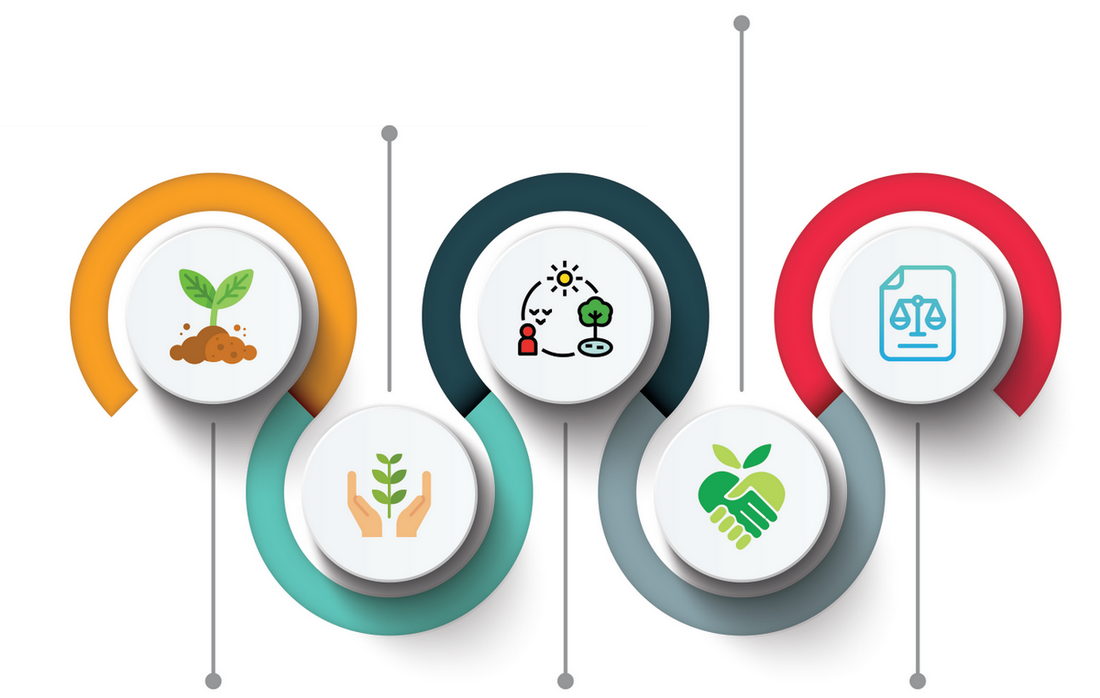
Early Generation Supply
- Remove restrictions favouring monopolies for supply of EGS
- Increase quality and quantity of EGS supply by increasing the number of professional actors involved
- Support initiatives for EGS Production.
Density and sustainability of agricultural network in key agro-ecologies
- Support more agro-dealer in areas where there none
- Encourage agro dealer associations for easy access to finance and other services.
Improved Seed Policies at national level
- Easy access to public varieties
- Production of foundation seed of public varieties
- More liberal regulatory (accreditation) & certification requirements
- More liberal variety release procedures
- Lower royalty charges on licensed varieties
- Liberalized seed marketing & seed packaging
- Strengthen penalties for dealing in fake seed.
The other challenge is to do with shortage of early generation seed supply. As the demands for improved seed continue to grow in Africa, there will be more need for the original stocks of seed (breeder and foundation) from which to produce certified seed for farmers to plant. Governments have always produced early generation seeds, but because the demand is overwhelming and are unable to cope up. Private seed companies on the other hand still have challenges to produce enough on their own. This therefore calls for some other innovative ways.
However, in January 2017, the African Agricultural Technology Foundation (AATF), with support from BMGF, AGRA launched Quali-Basic Seed Company (QBS), a regional entity dedicated to supplying the seed industry with foundation seed of stress-tolerant hybrid maize varieties.
With strong support from USAID, The Rockefeller Foundation, and Bill and Melinda Gates Foundation (BMGF), AGRA has established a track record of successfully advocating for seed policy reforms, having worked effectively with the governments of Mali, Ghana, Tanzania, Burkina Faso, and Mozambique to liberalize foundation seed supply policies, among others.
AGRA is also supporting other models to address the challenge and they include:
1
Private seed companies working closely with government institutions and CGIARs through partnerships
2
Seed companies through their national umbrella bodies identifying 2-3 seed companies with capacity and facilities to produce EGS for them in addition their original core mandate to produce certified seed
3
Standalone private seed companies solely producing EGS of a range of crops
The presence of poor-quality seed in the market in the form of counterfeit is another challenge that AGRA is addressing. Because national seed regulatory agencies are weak in terms of staff, facilities and resources, fake seed is finding its way on the market.
AGRA is helping to strengthen national seed regulatory agencies in various ways
1
Encouraging and supporting private seed inspection in Rwanda, Uganda, Nigeria, Ethiopia and Ghana
2
Introduction of Electronic tags (E-tags) on each seed pack for authentication: Uganda, Ethiopia, Tanzania and Nigeria
3
Equipping labs for seed analysis: Ethiopia, Nigeria, Uganda and South Sudan
4
Staff training public and private and equipping them with digitized tools for inspection and data management: Ethiopia South Sudan and Rwanda
5
Support to increase number of seed inspectors: Ethiopia and South Sudan
6
Support the establishment of an independent body responsible for seed regulation and certification: Rwanda and Malawi.
AGRA and partners have as well developed an effective approach and a methodology in several countries to increase awareness among farmers and trigger the adoption of improved varieties and other related technologies. This is being done in partnership with the Village Based Advisors (VBAs) a private led extension model. This is being carried out by engaging VBAs in on-farm trials on crop varieties in the release pipeline to ensure farmer preference is considered.

